Watch as Dr. Michael Elliott, Chief of Neurology at the Swedish Neuroscience Institute, shares his personal experiences and best practices for the diagnosis and management of ALS.
See patient and caregiver experiences with RADICAVA®.
Learn moreRADICAVA ORS® recognized as a MAJOR CONTRIBUTION TO PATIENT CARE by the FDA.1 Request a rep visit.


Experienced neurologists provide their insights for considering RADICAVA treatment that has been prescribed by 2400+ US HCPs since August 2017.1 a (see footnote)
Providers are paid consultants.
Watch as Dr. Michael Elliott, Chief of Neurology at the Swedish Neuroscience Institute, shares his personal experiences and best practices for the diagnosis and management of ALS.

Experiences of an ALS Expert, Featuring Dr. Michael Elliott
Learn about the dosing and administration of RADICAVA ORS®, the oral formulation of RADICAVA®, in this video featuring Dr. Michael Elliott.
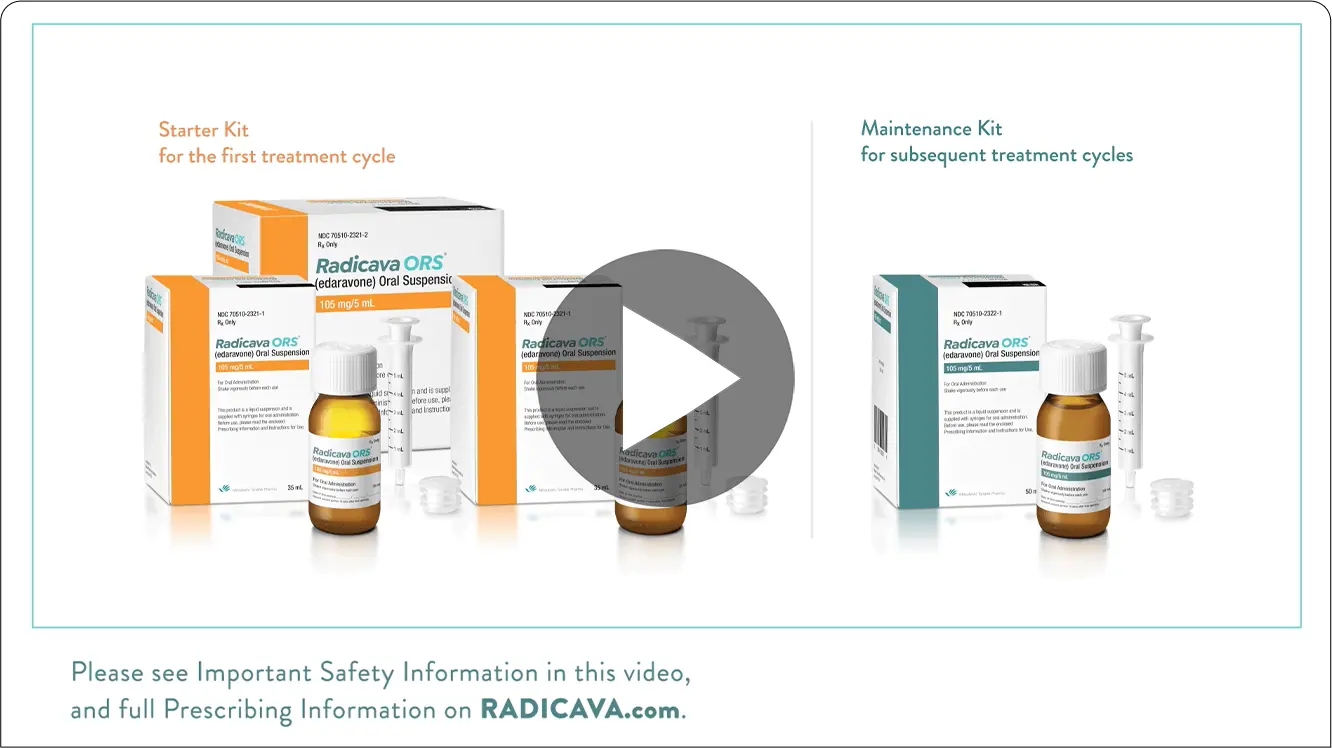
Dosing and administration of RADICAVA ORS®
Watch Dr Michael Elliott, Chief of Neurology for the Swedish Neuroscience Institute, provide a clinical overview of the Efficacy and Safety of RADICAVA® IV and RADICAVA ORS®.

The Safety and Efficacy of RADICAVA® IV (edaravone) and RADICAVA ORS®
Stanley H. Appel, MD, and Gary L. Pattee, MD, discuss RADICAVA ORS® data and their thoughts on what oral treatment means to patients.
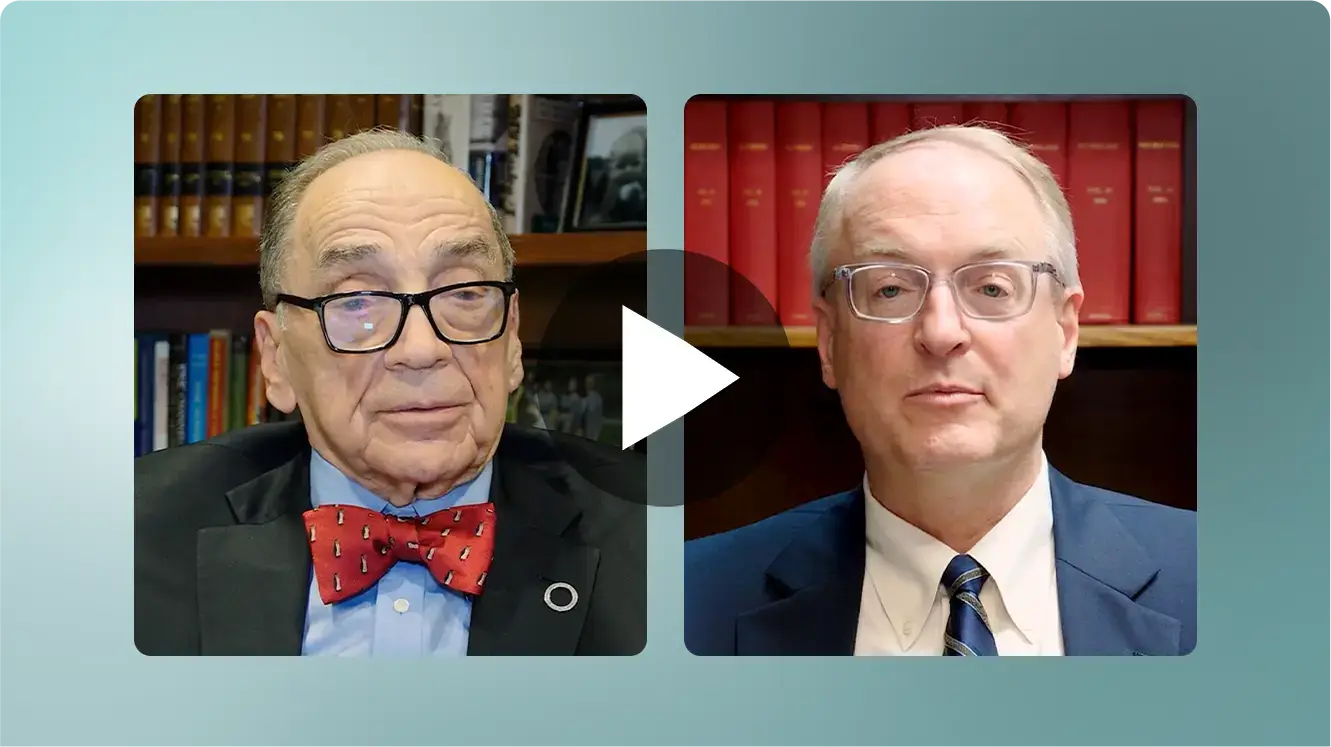
Nationwide Webcast Video Discussion About a Treatment in ALS
Ghazala Hayat, MD, FAAN, explains why she recommends RADICAVA® for all of her patients who are newly diagnosed with ALS and how the inclusion criteria from the pivotal trial impacts her decision to prescribe treatment.
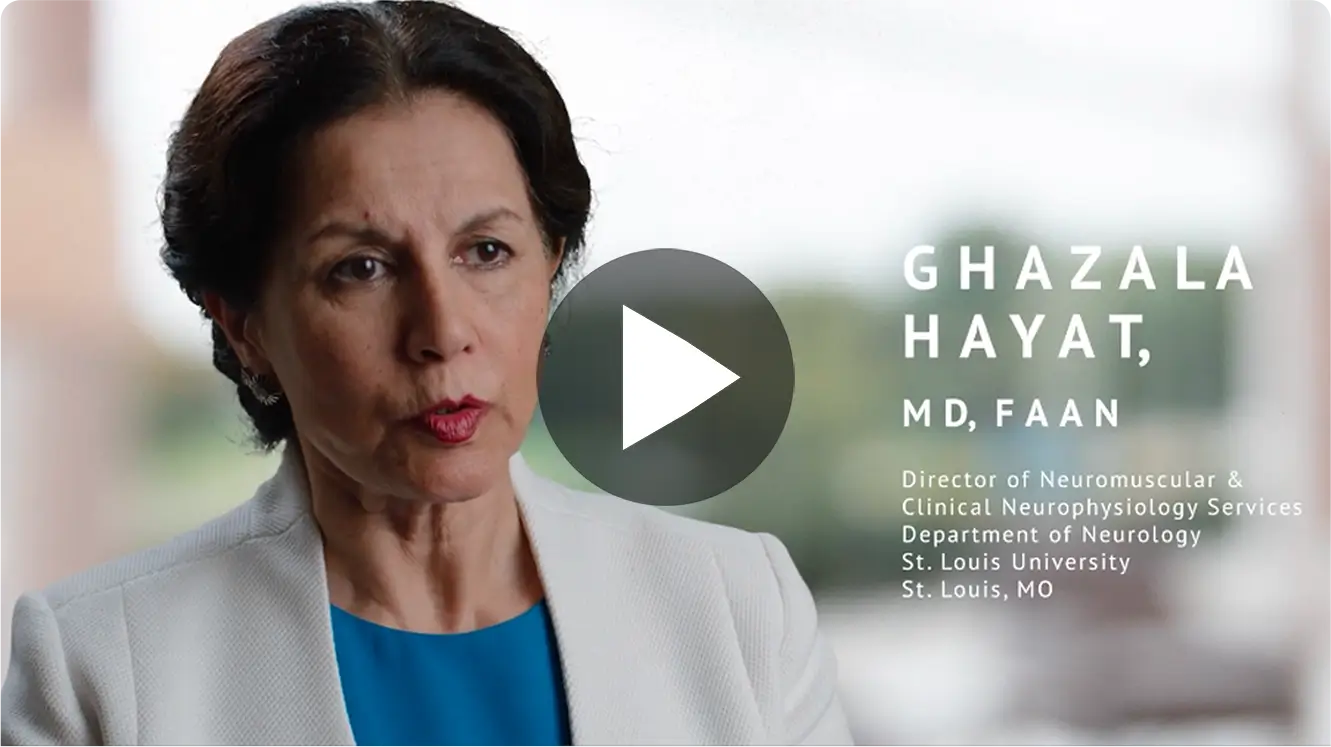
Considerations When Prescribing
Said Beydoun, MD, FAAN, discusses clinical trial results of RADICAVA®, his use of the ALSFRS-R with his patients, and the challenges that have faced previous ALS clinical trials and how newer clinical trials are addressing them.
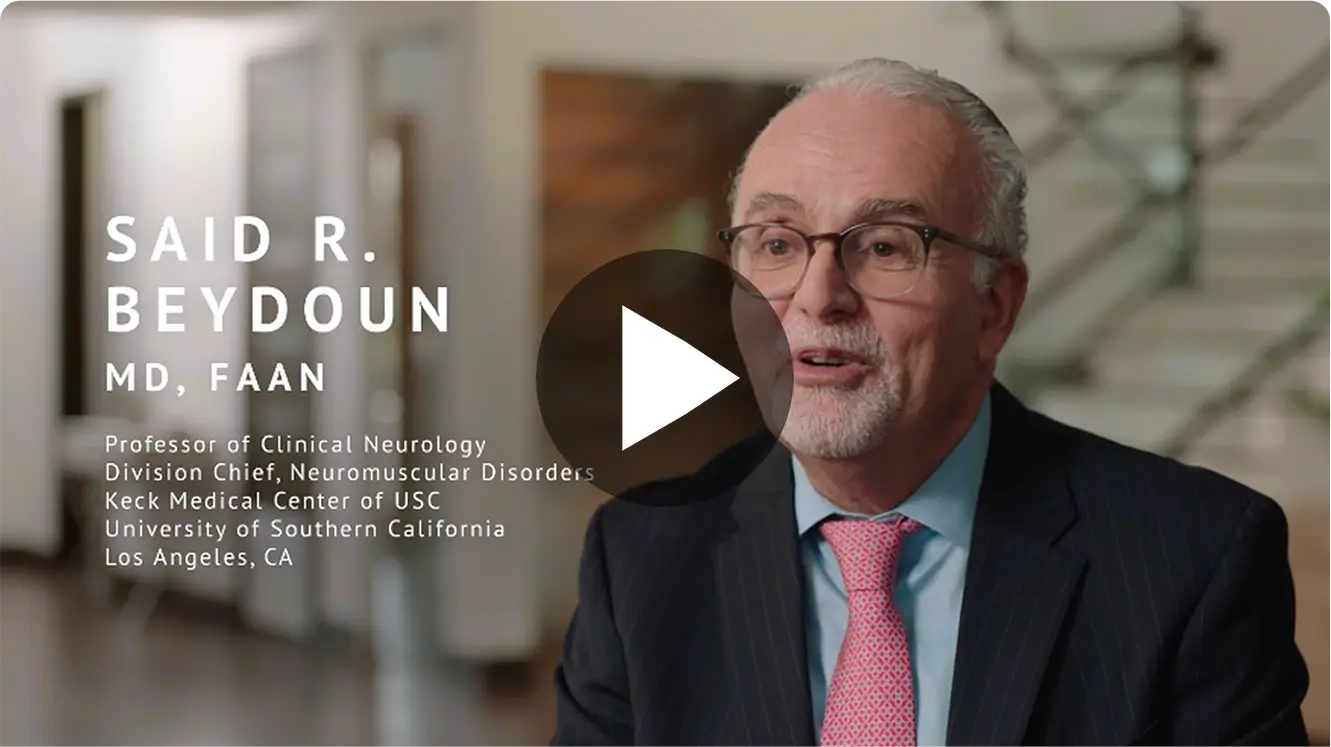
The Efficacy of RADICAVA®
Tomas Holmlund, MD, shares advice for handling in-office practicalities with RADICAVA®, including insurance and product access, and he explains why some of his patients prefer receiving treatment at an infusion center.

Incorporating RADICAVA® Into Your Treatment Considerations
Tomas Holmlund, MD, discusses the safety profile of RADICAVA® and how it impacts his decision to prescribe treatment.

Safety and Personal Experience When Prescribing
Providers are paid consultants.
See patient and caregiver experiences with RADICAVA®.
Learn more
Review educational webinars for ALS patients that may be appropriate for your patients.
Learn moreA panel of ALS experts discuss the benefits, risks, and appropriate uses of RADICAVA ORS® or RADICAVA® IV.
Providers are paid consultants.

Clinical Professor, Department of Neurology
Herbert Wertheim College of Medicine
Florida International University
Miami, Florida

University of Texas Health Science Center
San Antonio, Texas

California Pacific Medical Center
San Francisco, California
Learn about the ALS Functional Rating Scale-Revised (ALSFRS-R), the measure used to evaluate the clinical efficacy of RADICAVA®.
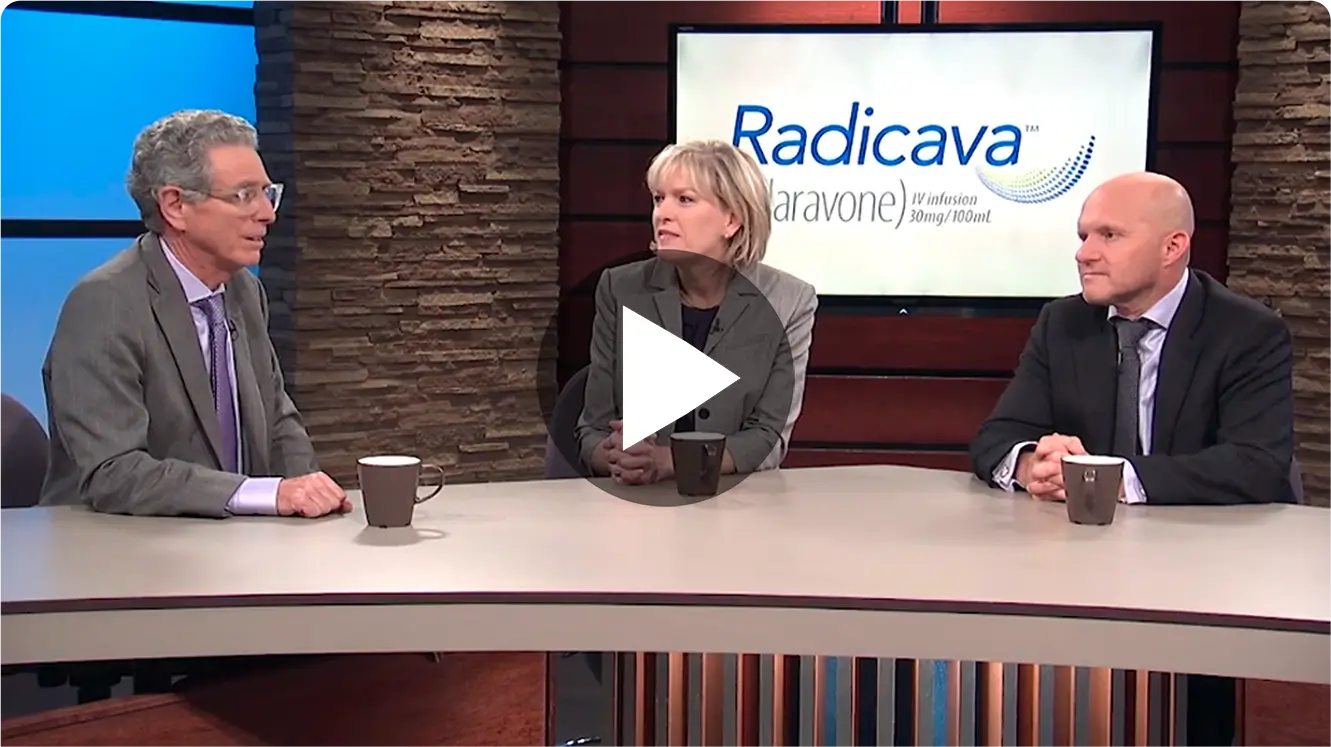
ALS Functional Rating Scale-Revised
Review information on the pivotal trial of RADICAVA® in ALS, including the clinical development program, key inclusion criteria, and baseline patient characteristics.
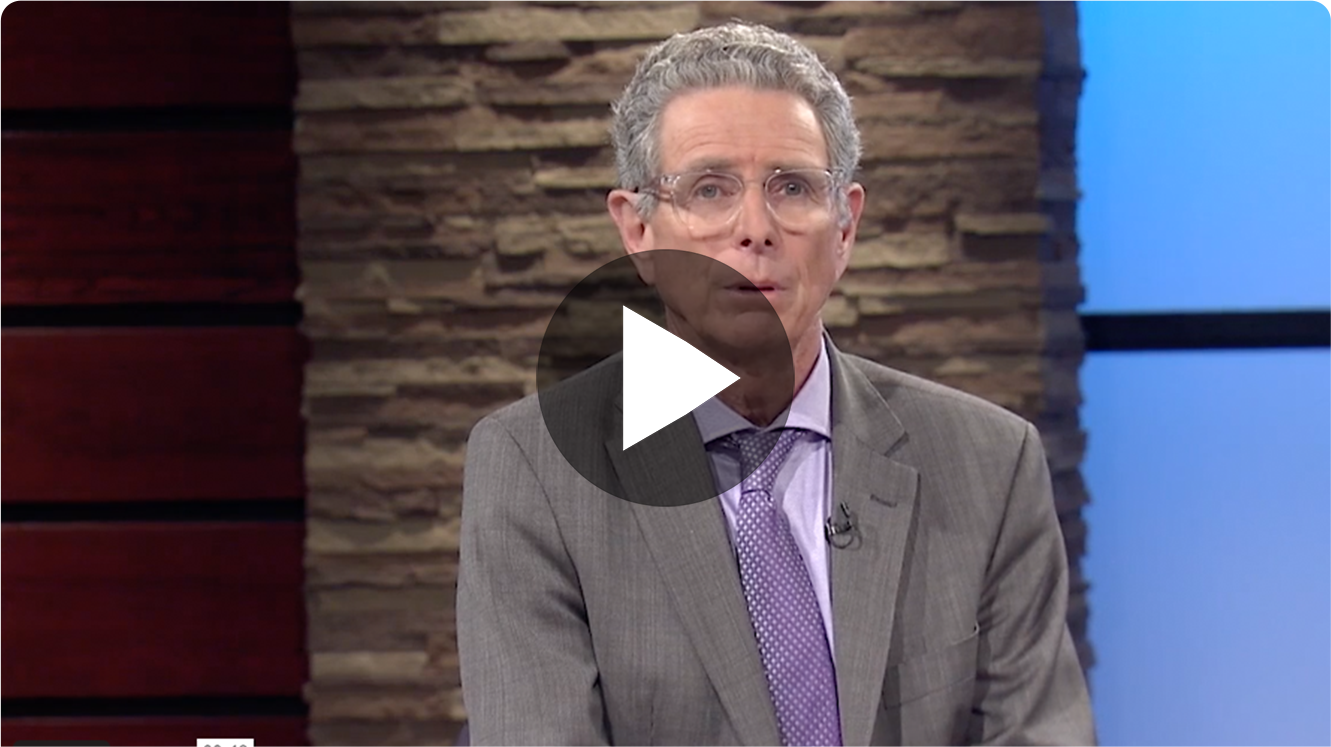
Pivotal Trial in ALS
Hear about primary efficacy endpoint data and safety information from the pivotal trial of RADICAVA®.

Efficacy and Safety
aBased on RADICAVA ORS® and RADICAVA® IV prescriptions submitted in the US as of August 2024. Not independently verified. Return to content
Reference: 1. Data on file. Jersey City, NJ: Mitsubishi Tanabe Pharma America, Inc.
RADICAVA (edaravone) and RADICAVA ORS (edaravone) are contraindicated in patients with a history of hypersensitivity to edaravone or any of the inactive ingredients of this product. Hypersensitivity reactions (redness, wheals, and erythema multiforme) and cases of anaphylaxis (urticaria, decreased blood pressure, and dyspnea) have occurred with RADICAVA.
Patients should be monitored carefully for hypersensitivity reactions. If hypersensitivity reactions occur, discontinue RADICAVA or RADICAVA ORS, treat per standard of care, and monitor until the condition resolves.
RADICAVA and RADICAVA ORS contain sodium bisulfite, a sulfite that may cause allergic-type reactions, including anaphylactic symptoms and life-threatening or less severe asthmatic episodes in susceptible people. The overall prevalence of sulfite sensitivity in the general population is unknown but occurs more frequently in asthmatic people.
The most common adverse reactions (≥10%) reported in RADICAVA-treated patients were contusion (15%), gait disturbance (13%), and headache (10%). In an open label study, fatigue was also observed in 7.6% of patients receiving RADICAVA ORS.
Based on animal data, RADICAVA and RADICAVA ORS may cause fetal harm.
To report suspected adverse reactions or product complaints, contact Mitsubishi Tanabe Pharma America, Inc., at 1-888-292-0058. You may also report suspected adverse reactions to the FDA at 1-800-FDA-1088 or www.fda.gov/medwatch.
RADICAVA and RADICAVA ORS are indicated for the treatment of amyotrophic lateral sclerosis (ALS).
Please see full Prescribing Information.
RADICAVA (edaravone) and RADICAVA ORS (edaravone) are contraindicated in patients with a history of hypersensitivity to edaravone or any of the inactive ingredients of this product. Hypersensitivity reactions (redness, wheals, and erythema multiforme) and cases of anaphylaxis (urticaria, decreased blood pressure, and dyspnea) have occurred with RADICAVA.
Patients should be monitored carefully for hypersensitivity reactions. If hypersensitivity reactions occur, discontinue RADICAVA or RADICAVA ORS, treat per standard of care, and monitor until the condition resolves.
RADICAVA and RADICAVA ORS contain sodium bisulfite, a sulfite that may cause allergic-type reactions, including anaphylactic symptoms and life-threatening or less severe asthmatic episodes in susceptible people. The overall prevalence of sulfite sensitivity in the general population is unknown but occurs more frequently in asthmatic people.
The most common adverse reactions (≥10%) reported in RADICAVA-treated patients were contusion (15%), gait disturbance (13%), and headache (10%). In an open label study, fatigue was also observed in 7.6% of patients receiving RADICAVA ORS.
Based on animal data, RADICAVA and RADICAVA ORS may cause fetal harm.
To report suspected adverse reactions or product complaints, contact Mitsubishi Tanabe Pharma America, Inc., at 1-888-292-0058. You may also report suspected adverse reactions to the FDA at 1-800-FDA-1088 or www.fda.gov/medwatch.
RADICAVA and RADICAVA ORS are indicated for the treatment of amyotrophic lateral sclerosis (ALS).
Please see full Prescribing Information.
You are leaving this website, hosted by Mitsubishi Tanabe Pharma America.
This link may take you to a website to which our Privacy Policy does not apply.
Mitsubishi Tanabe Pharma America does not control the content of third-party sites.